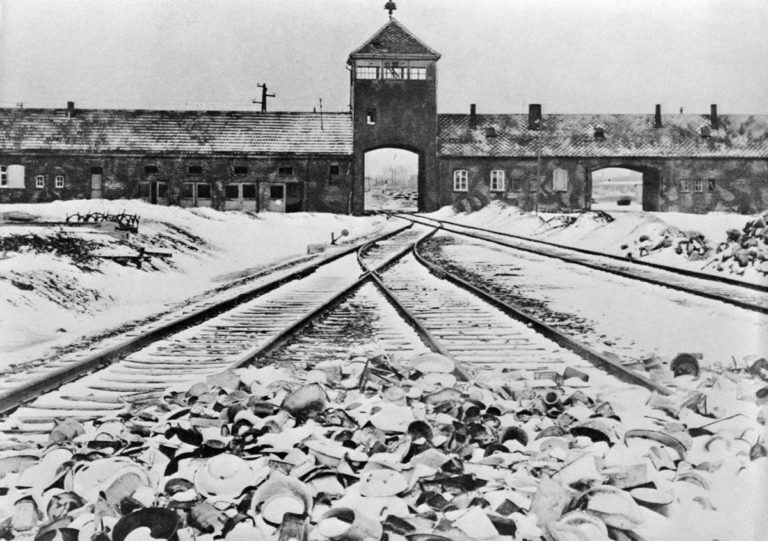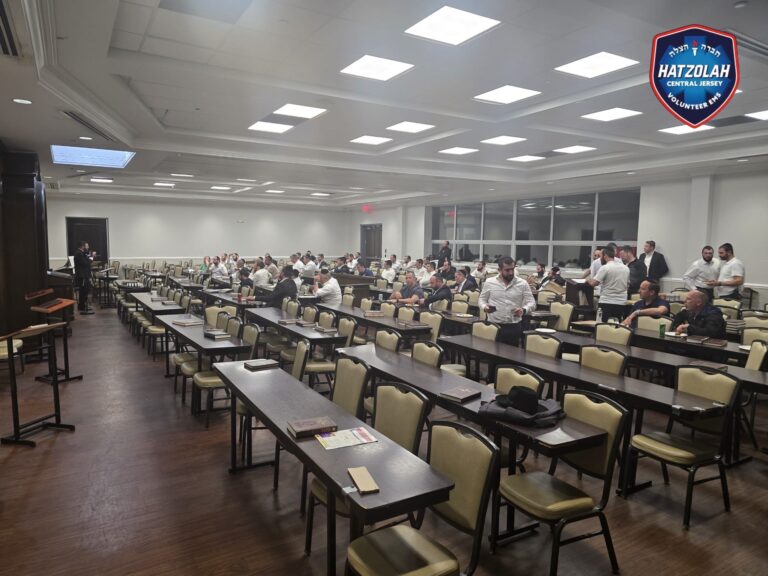 [By Rabbi Yair Hoffman]
[By Rabbi Yair Hoffman]
Long, long ago, in a continent far far away, there emerged a debate about the recitation of Hallel on the night of Pesach in the synagogue. Should it be said in synagogue as well? Or do we just recite the Hallel at night at the Seder?
The debate began during the times of the Rishonim, and the debate continues on until our own times.
There are modern manifestations of the debate as well. What happens when you are at a minyan where they say the Hallel, and your custom is not to say it? Rav Shmuel Kaminetsky Shlita holds that you should surreptitiously slip away and not say it. Indeed, he writes that you are obligated to do so. Rav Moshe Feinstein zatzal wrote otherwise. He wrote that one should still recite it – even against one’s own family minhag.
The Pesach hotels, by the way, love the custom. Why so? Generally speaking, the hotels do not necessarily have their act together on the first night of Pesach to cater to hundreds of people, including private seders in side rooms. Often the staff they use is not trained for the hefty demands of a Passover Seder for hundreds of people. The hotels welcome the extra time that the recitation of Hallel affords. Indeed, one Kosher Hotel operator was famous for ensuring that every minyan recite the Hallel just to gave an extra thirty minutes to set up the Seder tables in his hotel.
But let’s get back to the halacha aspect of things.
The Talmud Bavli makes no mention of the custom of reciting Hallel in shul. However, the Rashba writes (Brachos 11a) that the essential enactment of reciting Hallel was to do so in the synagogue. This is the custom of Sefardim and those that follow the Nusach Sefard. They recite a blessing both before the recitation of the Hallel and after.
Tosfos (Brachos 14a “Yamim shehayachid”) holds that if, in fact, one did recite the Hallel in shul – then one skips it, yes, skips it, in the Seder. Tzafun, Barech and Nirtzah.
Now while the Rashba does cite this custom, he alone in the world of major Sefardic or Mizrach Poskim mentions it. Neither the Rif nor the Rambam make any hint of the custom. Nor does Rashi make mention of it and it does not appear in the Machzor Vitri either – the siddur written by Rashi’s student that tells us how exactly Rashi davened.
Clearly, the custom of Ashkenazic Jewry was not to recite Hallel in Shul on the night of Pesach. In Eretz Yisroel, however, the custom has evolved even for Ashkenzaim to recite it in Shul. The Brisker Rav, however, stood in stark opposition to this – even after he had moved to Yerushalayim. It was his custom to walk out before its recitation at the end of Maariv on the night of Pesach.
A COMPROMISE POSITION
The Chazon Ish’s position was to recite the Hallel in shul, but without saying the bracha upon it. Some say that this was also the opinion of the Chsam Sofer (see Minhagei Chsam Sofer in the footnotes citing the Shiras Moshe’s quote of a statement of the Maharam Schick) but contemporary practices of those that follow the Chsam Sofer’s customs are not to recite it at all.
REASONS WHY SOME DO RECITE IT IN SHUL
Aside from the Pesach hotel caterer’s reason to have it recited in the shul cited above, it would seem to be a good idea to explore the reasons why it is recited there. The earliest reason provided is that of the Meiri who says that it was established as a commemoration to the Hallel that was recited in the Azarah on the 14th of Nissan at the time of the slaughtering of the Korban Pesach. This custom is also recited in the Siddur entitled the Maaglei Tzedek (in the Seder HaPesach).
Another Rishon who gives us an opinion on the reason is the Tur (OC 473) who writes that we recite it in shul so as to avoid an entirely different problem of Safek Bracha on the Hallel in the Seder itself. Some Rishonim held that a bracha is recited on the Hallel during the Seder. Others disagree since it is broken up with the meal in between it. To avoid the issue of safek bracha – some recite Hallel.
The Vilna Gaon (end of OC 487), however, gives us a different reason citing the Tosefta in the 10th chapter of Psachim. He writes that it was established as a Kiruv measure (kind of like a Talmudic era Gateway’s) so that those people that do not know how to read the Hallel themselves would have the opportunity for it to be recited on their behalf.
One of my Rebbeim, Rav Dovid Kviat zatzal, had an altogether different reason for the general recitation fo Hallel. He cited the Midrash Tehillim that while yet in Mitzrayim before we were redeemed, we had such Emunah and closeness to Hashem that we recited the Hallel even before the redemption on account of the redemption that was forthcoming. Since at that time we did this collectively, it might be suggested that we should do it collectively nowadays too in shul.
Another reason cited by contemporary Poskim (See response section of Haggadah Imrei Chamudos #11) is that there is a concern that a person may fall asleep at night prior to reciting Hallel in the Hagaddah.
REASONS WHY PEOPLE SPECIFICALLY DO NOT RECITE IT IN SHUL
The Netziv, Rabbi Naftali Tzvi Yehuda Berlin (Responsa Vol. I #13) writes that the ideal form of reciting Hallel on Pesach is to say it as an outburst of spontaneous song – which is the definition of the Shira. If it is recited in the synagogue, it is not said over wine and, while still a fulfillment of the Mitzvah – is only a bedieved fulfillment of it. After one has already recited the Hallel in shul when he says it again at the Hagaddah it is only as one who reads Tehillim. It is no longer the spontaneous outburst of joy, anymore, when he says it a second time.
In order to avoid the problem brought up by the Netziv, Rav Moshe Shternbuch has the practice (See Moadim UZmanim Vol. III footnote 360) of asking someone else to recite the Bracha for him in shul and he says it on condition – if the essential Mitzvah is in shul, he fulfills his Mitzvah. If it is at the Hagaddah – then what he is reciting in shul is just reciting Tehillim.
Similarly, Rav Shmuel Kaminetsky Shlita explains that when one recites it in Shul one has fulfilled the Mitzvah of Hallel B’dieved and therefore one does not fulfill it at the Seder which is the essential venue of the Mitzvah of Hallel on Pesach night. He, therefore, disagrees with Rav Moshe Feinstein’s view and holds that when one is in a shul that is saying Hallel – one should avoid reciting it – surreptitiously, so that he does not appear as if he is going against the practice of the Shul (footnote to Kovetz Halachos 18:4).
Rav Moshe Feinstein zt”l wrote (Igros Moshe OC II #94) that when one is in a shul that says it, he should recite the Hallel even if his family Minhag is otherwise.
ARUCH HASHULCHAN’S VIEW
The Aruch haShulchan (487:7) writes that it should not be said in shul by dint of the fact that this custom is not mentioned in the Talmud.
Rav Shternbuch writes that the entire reason to recite the Hallel in shul is to fulfill the Mitzvah of reciting Hallel for those who are unable. Since, nowadays, everyone is able, we should no longer recite it in the synagogue, similar to what has transpired with the Kiddush that used to be said in shul. In modern times, many shuls no longer recite the Kiddush in Shul because everyone can recite it themselves.
Another reason is put forward by the Arugas HaBosem cited in HaSeder HaAruch (28:3): In Meseches Sofrim (20:9) it states that the Hallel should be recited in a state of Ne’imah – with an awakening to praise and glorify Hashem. If we are voluntarily reciting the Hallel and we cannot muster this level of enthusiasm – it is preferable not to recite it.
WHEN THE RAV MAKES AN ANNOUNCEMENT
What happens when the Rav of the Shul announces that Rav Moshe Feinstein’s view was to recite the Hallel? It is this author’s view that even Rav Shmuel would agree that under such circumstances, one should recite the Hallel. As of press time, however, this was unable to be verified.
The author can be reached at [email protected]











2 Responses
Please give us a similar write up about saying hallel on yom hatzmaut, like gemora, rishonim, poskim etc.
“What happens when the Rav of the Shul announces that Rav Moshe Feinstein’s view was to recite the Hallel?”
Why would a Rav make such an announcement?
If people want to follow the Brisker Rav zatzal, and yibadel lechayim tovim Moreinu Rav Shmuel Kamenetsky shlita, and leave, they have giants to rely on. The Rav should stay silent, stand down, and not confuse things with such statements. Silence is golden.